Breaking
- MENU
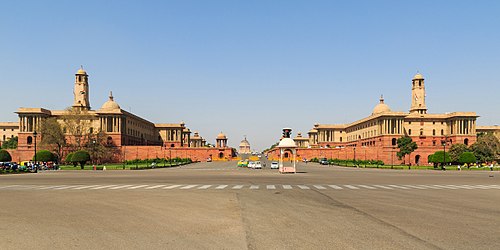
BILATERAL ISSUES
BAHRAIN
Deputy Chief of Naval Staff, India visits Kingdom of Bahrain, Manama, 29 July 2022.
In a boost to bilateral defence cooperation between India and Bahrain, Deputy Chief of Naval Staff (DCNS) Vice Admiral Sanjay Mahindru AVSM, NM visited Bahrain from 26-29 July, 2022.
2. DCNS called on HRH the Crown Prince and Prime Minister of Bahrain, Prince Salman bin Hamad Al Khalifa and discussed the growing bilateral cooperation including in defence and maritime security domain between India and Bahrain. DCNS also called on HH Shaikh Nasser bin Hamad Al Khalifa, NSA of Kingdom of Bahrain, and met Lieutenant-General Theyab bin Saqr Al Nuaimi Chief of Staff, Bahrain Defence Force and Rear Admiral Salah Mohammed Hejres, Deputy Commander Royal Bahrain Naval Force. Both sides reviewed and discussed ways to further enhance the defence and security cooperation between India and Bahrain.
3. DCNS also visited the US Central Command and Combined Maritime Force (CMF) Headquarters and held a bilateral meeting with Vice Admiral Charles B Cooper, Commander US NAVCENT regarding the initiation of Indian Navy’s ‘Associate Support’ to CMF.
4. India joined CMF as an Associate Partner, in keeping with India’s commitment to collective responsibility of Maritime Security in the Indian Ocean.
5. During the visit, INS Teg made a port call in Manama, Bahrain. A reception was hosted by Ambassador of India to Bahrain, H.E. Piyush Srivastava and Deputy Chief of Naval Staff, Vice Admiral Sanjay Mahindru, on board the ship. The reception was attended by CMF Commander, Vice Admiral Charles B Cooper, Brigadier General Abdulaziz Al Azmi of Royal Bahrain Naval Force (RBNF), Hon’ble Members of Parliament of Bahrain, members of the Diplomatic corps in Bahrain, Officers and Sailors of the Indian Navy, RBNF, US Navy and CMF, as well as members of Indian and Bahraini business community and media fraternity. Source: Embassy of India, Manama.
EGYPT
Ins Kochi Visits Safaga, Egypt, New Delhi, 02 July 2022.
INS Kochi, Mission Deployed in the Red Sea visited Port Safaga, Egypt from 28 - 30 Jun 22.
During the ship's visit, Rear Admiral Sameer Saxena, Flag Officer Commanding Western Fleet (FOCWF), along with Captain Himadri Bose, Commanding Officer, INS Kochi, called on Rear Admiral Mohamed Nabil Ibrahim Ahmed, Base Commander of Safaga Naval Base, Egyptian Navy. His Excellency Mr. Ajit Gupte, Ambassador of India to Egypt, also met Rear Admiral Sameer Saxena, FOCWF onboard INS Kochi.
Engagements between Indian Navy and Egyptian Navy personnel included a friendly football match at the Red Sea Navy Base, where RAdm Mohammed Nabil Ibrahim Ahmed, was the Chief Guest. Personnel from both the navies also carried out ship visits.
On her departure from Safaga on 30 June 22, INS Kochi participated in a Maritime Partnership Exercise with the Egyptian Navy ships ENS Al Zubair and ENS Abu Ubadah (Lurssen Class Offshore Patrol Boats). The exercise comprised of Visit Board Search and Seizure (VBSS) drills, communication exercise, flag hoist drills and operational manoeuvres including ceremonial steam past. Source: Press Information Bureau (PIB).
IAF Participation in Tactical Leadership Programme in Egypt, New Delhi, 08 July 2022.
Indian Air Force contingent is reaching the midway point of the Tactical Leadership Programme (TLP) at Egyptian Air Force (EAF) Weapon School in Egypt (Cairo West Airbase). The programme commenced on 24 Jun and will culminate on 23 Jul 22. IAF is participating with three Su-30 MKI aircraft. Two C-17 aircraft were used for induction of the contingent. IAF Su-30 MKI aircraft undertook a non-stop ferry of six hours from Jamnagar airbase (India) to Cairo West airbase (Egypt), overflying four countries enroute.
Tactical Leadership Program is a unique exercise, wherein IAF is participating with its aircrew as instructors. This exercise provides a good opportunity to showcase the reach and capability of the IAF. It will also assist in enhancing defence cooperation between the two countries and exchange of best practices.
During the first two weeks of the exercise IAF aircraft participated in missions by day and night, involving air to ground & air to air combat scenarios and Combat Search And Rescue (CSAR) activity alongside Egyptian F-16, Rafale and Mig 29 aircraft. Source: Press Information Bureau (PIB).
IRAN
Phone call between the Foreign Secretary and H.E. Dr. Ali Bagheri Kani, Deputy Minister for Political Affairs, Iran, New Delhi, 05 July 2022.
Foreign Secretary Shri Vinay Kwatra spoke on phone today with H.E. Dr. Ali Bagheri Kani, Deputy Minister for Political Affairs, Ministry of Foreign Affairs of the Islamic Republic of Iran.
2. The two sides discussed various elements of bilateral relations including progress on the Chabahar Port. Foreign Secretary underscored India's commitment to strengthen bilateral cooperation with Iran in addressing shared opportunities and challenges. Both sides also discussed international and regional issues including Afghanistan. Source: Ministry of External Affairs (MEA).
Unstarred Question No.1340, Construction of Chabahar Port, Rajya Sabha, 28 July 2022.
1340. SHRI VIVEK K. TANKHA:
Will the Minister of EXTERNAL AFFAIRS be pleased to state:
(a) the total burden on Government exchequer in construction of the Chabahar port and the period in which it will be recovered;
(b) the monetary and non-monetary benefits that Government plans to reap from the project; and
(c) the deadlines of various stages in the construction of the port?
ANSWER
THE MINISTER OF STATE IN THE MINISTRY OF EXTERNAL AFFAIRS [SHRI V. MURALEEDHARAN]
(a) to (c) During the visit of the Prime Minister to Iran in May 2016, a Trilateral Agreement to establish the International Transport and Transit Corridor (Chabahar Agreement) was signed by India, Iran and Afghanistan. India is participating in the development of the first phase of the Shahid Behesti Terminal, Chabahar Port in cooperation with the Government of the Islamic Republic of Iran.
2. India has committed total grant assistance of USD 85 Million and a credit facility of USD 150 Million for the development of Shahid Behesti Terminal, Chabahar Port. As part of our commitment towards infrastructure development of the Shahid Beheshti Terminal, Chabahar Port, India has supplied 06 Mobile Harbour Cranes (two 140 tons and four 100 tons capacity) and other equipment worth USD 25 Million.
3. The Indian company, India Ports Global Limited (IPGL), through its wholly owned subsidiary, India Ports Global Chabahar Free Zone (IPGCFZ), took over the operations of the Chabahar Port w.e.f. 24.12.2018. Since then, it has handled 215 vessels, 16,000 TEUs (Twenty-foot Equivalent Units) and 4 million tons of bulk and general cargo.
4. The Chabahar Port has provided much needed sea-access to the landlocked countries of the region, including Afghanistan and emerged as a commercial transit hub for the region. It is a more economical and stable route for landlocked countries of the region to reach India and the global market. Till date, a total of 2.5 million tons of wheat and two thousand tons of pulses has been trans-shipped from India to Afghanistan through Chabahar Port.
5. The port has also facilitated the supply of humanitarian assistance, especially during the COVID-19 pandemic. India has utilized the Chabahar port to ship 75,000 MTs of wheat as humanitarian food assistance to Afghanistan in 2020. In 2021, India supplied 40,000 litres of environment friendly pesticide to Iran to fight locust menace. The port has also been utilized by the Central Asian Countries to access the global market and has increased trade and economic opportunities for the traders of the region. Source: Ministry of External Affairs (MEA).
IRAQ
India strongly condemns recent killings in Kurdistan Region of Iraq, New Delhi, 25 July 2022.
India strongly condemns the recent killings in the Zakho district of Dohuk Governorate, Kurdistan Region of Iraq, which is a clear violation of the country's sovereignty and a blatant disregard for international humanitarian law.
India expresses its deepest condolences to the families who lost their loved ones in the dastardly attack and wishes the injured a speedy recovery.
India also conveyed its stand and condolences in messages inscribed today in condolence books opened by Government of Iraq in Baghdad and Embassy of Iraq in New Delhi. Source: Ministry of External Affairs (MEA).
Question No.1337, India- Iran JCPOA, Rajya Sabha, 28 July 2022.
1337. SHRI NIRANJAN BISHI:
Will the Minister of EXTERNAL AFFAIRS be pleased to state:
(a) the details on the discussions that the Iranian Foreign Minister had with the Prime Minister and External Affairs Minister during his recent visit to India;
(b) the details on the discussions particularly in relation to the Joint Comprehensive Plan of Action (JCPOA) that took place between the two Foreign Ministers;
(c) whether the Iranian Foreign Minister has indicated towards resolution of its issues with the West and withdrawal of sanctions in any way; and
(d) if so, the details thereof?
ANSWER
THE MINISTER OF STATE IN THE MINISTRY OF EXTERNAL AFFAIRS [SHRI V. MURALEEDHARAN]
(a) to (d) At the invitation of the External Affairs Minister, the Foreign Minister of the Islamic Republic of Iran, Dr. Hossein Amir Abdollahian paid an official visit to India from 08-10 June 2022. During the visit, Foreign Minister Dr. Amir Abdollahian paid a courtesy call onto the Prime Minister and held delegation level talks with EAM.
During the delegation level talks, the two Ministers discussed the entire gamut of bilateral relations including political, cultural and people to people ties. Noting the significance of bilateral cooperation in the field of regional connectivity, the two sides reviewed the progress made at the Shahid Beheshti terminal, Chabahar port. The Ministers also discussed international and regional issues of mutual interest. The Iranian Foreign Minister briefed EAM on the current situation pertaining to the Joint Comprehensive Plan of Action (JCPOA). India reaffirmed that all JCPOA related issues should be resolved peacefully through dialogue and diplomacy. Source: Ministry of External Affairs (MEA).
ISRAEL
PM congratulates His Excellency Yair Lapid for assuming the premiership of Israel, New Delhi, 01 July 2022.
The Prime Minister, Shri Narendra Modi has congratulated His Excellency Yair Lapid for assuming the premiership of Israel. Shri Modi has also thanked His Excellency Naftali Bennett for being a true friend of India.
In a series of tweets, the Prime Minister said;
"Warm wishes and heartiest congratulations to His Excellency @yairlapid for assuming the premiership of Israel. I look forward to continue furthering our strategic partnership as we celebrate 30 years of full diplomatic relations."
"Thank you His Excellency @naftalibennett for being a true friend of India. I cherish our fruitful interactions and wish you success in your new role." Source: Press Information Bureau (PIB).
KUWAIT
PM congratulates His Highness Sheikh Ahmad Nawaf Al Ahmed Al-Sabah on his appointment as the Prime Minister of Kuwait, New Delhi, 25 July 2022.
Prime Minister of the Republic of India, His Excellency Shri Narendra Modi congratulated His Highness Sheikh Ahmed Nawaf Al Ahmed Al-Sabah, on his appointment as Prime Minister of the State of Kuwait.
2. In a tweet message, Prime Minister His Excellency Shri Narendra Modi said, “My congratulations and best wishes to His Highness Sheikh Ahmad Nawaf Al Ahmed Al-Sabah, on his appointment as the Prime Minister of Kuwait. I look forward to working with him to further deepen and expand our excellent bilateral relations.” Source: Embassy of India, Kuwait.
Indian Naval Ship (INS) TEG visits Kuwait, Kuwait, 18 July 2022.
Indian Naval Ship (INS) TEG arrived at Shuwaikh Port, State of Kuwait on July 18, 2022 for Operational Turn Around. The Ship was welcomed by senior officers of Kuwait Naval Force, Port authorities, Embassy and Defence Wing officials. The visit is scheduled till July 21, 2022.
2. INS TEG has been deployed extensively for numerous missions including anti-piracy operations in the Gulf of Aden, providing maritime security in the seas of India's maritime partner nations and exercises with other regional navies.
3. INS TEG visit to Kuwait will strengthen the deep-rooted, multi-faceted friendly ties and growing cooperation between the Republic of India and the State of Kuwait. Source: Embassy of India, Kuwait.
LEBANON
Meeting with Minister of Culture H.E. Judge Muhammad Wissam Al-Murtada, Beirut, 13 July 2022.
Ambassador Dr Suhel Khan met with Minister of Culture, H.E. Judge Muhammad Wissam Al-Murtada, on July 13, 2022.
They discussed cultural exchanges between India & Lebanon & other issues of mutual interests. Amb. also briefed him on activities organized by the Embassy under Azadi Ka Amrit Mahotsav. Source: Embassy of India, Beirut.
Call on Minister of Agriculture H.E. Abbas Hajj Hassan, Beirut, 25 July 2022.
Ambassador Dr Suhel Khan, accompanied by Embassy officials, called on Minister of Agriculture H.E. Abbas Hajj Hassan on July 25, 2022. They discussed issues of mutual interests & ways to strengthen India-Lebanon cooperation in Agriculture Sector and bilateral trade in Agri commodities. Source: Embassy of India, Beirut.
Meeting with President of Chamber of Commerce, Industry and Agriculture on 26 July 2022, Beirut, 27 July 2022.
Ambassador Dr Suhel Ajaz Khan, accompanied by HOC Shri Sandeep Grover paid a visit to Mr Mohammed Saleh, President of the Chamber of Commerce, Industry and Agriculture of Saida on July 26, 2022 in Saida. They discussed various issues of mutual interests. Source: Embassy of India, Beirut.
Medal Day Parade on July 26, 2022, Beirut, 27 July 2022.
Ambassador Dr. Suhel Ajaz Khan attended the Medal Day Parade and Medal Award Ceremony at the UNIFIL on July 26, 2022. CO Col PN Sujay Kumar, SM and others received UN Service Medals. The Medal Day Parade &Medal Award Ceremony was Commander Sector East UNIFIL, Representatives of Lebanese Army & other dignitaries. Source: Embassy of India, Beirut.
MOROCCO
Indian Navy and Royal Moroccan Navy conduct Maritime Patrol Exercise, Rabat, 27 July 2022.
Indian Naval Ship, INS Tarkash undertook Maritime Patrol Exercise (MPX) with Royal Moroccan Naval Ship Hassan II on July 26, 2022, off Port Casablanca. During this Maritime Patrol Exercise that stretched over 7 hours, various advanced activities were conducted. The exercise apart from strengthening maritime ties between the two countries, provided an opportunity to both ships to better understand the operating procedures of each other thereby enhancing inter-operability between the two Navies.
2. INS Tarkash is a frigate of Indian Navy and is currently on overseas deployment to build Bridges of Friendship with friendly nations. India and Morocco enjoy cordial and friendly relations that have intensified and diversified in recent years in various areas of mutual interests, including defence cooperation. Source: Embassy of India, Rabat.
OMAN
Royal Army of Oman Contingent for Joint Exercise Al NAJAH-IV Arrive in India, New Delhi, 31 July 2022.
The 4th Edition of India Oman Joint Military Exercise ‘AL NAJAH-IV’ between contingents of Indian Army and the Royal Army of Oman is scheduled to take place at the Foreign Training Node of Mahajan Field Firing Ranges (Rajasthan) from 01 to 13 August 2022. The Royal Army of Oman contingent comprising 60 personnel from the Sultan of Oman Parachute Regiment have arrived at the exercise location. The Indian Army is represented by troops from the 18 MECHANISED INFANTRY Battalion. The previous edition of Ex AL NAJAH IV was organised at Muscat from 12 to 25 March 2019.
The scope of the exercise includes professional interaction, mutual understanding of drills & procedures, establishment of joint command & control structures and elimination of terrorist threats. The joint exercise would focus on Counter Terrorism Operations, Regional Security Operations and Peace Keeping Operations under United Nations charter apart from organising joint physical training schedules, tactical drills, techniques and procedures.
A comprehensive training programme to culminate in a 48 hours long validation exercise involving establishing of joint mobile vehicle check posts, joint cordon and search operations followed by joint room intervention drills in a built up area has been worked out.
The joint military exercise aims to enhance the level of defence co-operation between Indian Army and Royal Army of Oman and will further manifest in enhancing the bilateral relations between the two nations. Source: Press Information Bureau (PIB).
PERMANENT MISSION OF INDIA TO THE UN
UNSC briefing on Yemen, India Statement, New York, 11 July 2022.
Thank you, Mr. President. I thank the UN Special Envoy Hans Grundberg and Ms. Joyce Msuya, Assistant Secretary-General for Humanitarian Affairs and Deputy Emergency Relief Coordinator for their briefings.
2. The renewal of the nationwide truce has helped in considerably reducing hostilities at frontlines. It is the responsibility of the relevant parties to ensure that the truce is upheld and converted into a durable and long-lasting ceasefire.
3. The truce has also helped shift the focus away from the military arena and brought much needed attention to the political and economic aspects of the conflict. We appreciate the efforts of the UN Special Envoy to engage with the parties in the implementation and consolidation of all measures agreed as part of the truce agreement and move towards a political dialogue.
4. The full and meaningful implementation of all elements of the truce is critical for sustaining the truce. While progress has been achieved in the delivery of fuel at Hudaydah port and opening of Sana’a airport, the opening of roads in Taiz remains deadlocked. Yemenis have suffered for too long from the impact of road closures. Immediate progress in opening of arterial roads to these governates is an urgent humanitarian imperative. We call on Ansarallah to negotiate in good faith to urgently reach an agreement on this issue.
5. The truce is also an opportunity to step up humanitarian aid to Yemen's needy population. Instead, we are witnessing scaling down of aid operations due to critical funding gaps, whose impact is further exacerbated by global inflation in commodity prices. The low level of funding, unless reversed quickly, could lead to further cuts to humanitarian aid in Yemen, including food aid. This would leave millions of Yemenis, especially children, without adequate food and nutrition.
6. In order to mitigate the supply changes in the global commodity markets and their adverse impact on food security, India has been providing financial assistance as well as supplying food grains to countries in need. India has exported more than 250,000 tons of wheat to Yemen, in the last three months.
7. It is also important to ensure the civilian nature of the ports in the Hudaydah governorate from the food security perspective, as these ports remain the main gateway for flow of food and other essential commodities into Yemen. In this regard, India supports a more effective mandate for the UN Mission to support the Hudaydah Agreement, which will enable the Mission to undertake monitoring missions to these ports and report on their possible use for military purposes.
8. A sustainable solution to the humanitarian crisis lies in concrete economic measures that benefit the people of Yemen. We have underscored the need to address the disruption in key segments of Yemen’s economy and its fragmentation. We recognize the efforts of the Presidential Leadership Council to address these challenges. The international community must support the Government of Yemen to help them overcome these challenges.
9. We are also concerned by the increasing number of attacks reportedly attributed to Al-Qaeda in the Arabian Peninsula, the AQAP. AQAP is actively exploiting the conflict in Yemen, notwithstanding the truce and the changed military dynamics, and poses a significant threat to peace and stability in Yemen, across the region and beyond. The Council must not lose focus of this threat.
10. The only sustainable solution to the conflict is a peacefully negotiated, Yemeni-led and Yemeni-owned political settlement that prioritizes the well-being of all Yemenis and meets their legitimate aspirations. We encourage all parties to work actively with the UN Special Envoy in his efforts to find a sustainable political solution.
11. The nationwide truce and other recent developments in Yemen have raised the hopes of the people of Yemen that the conflict, which has devastated their lives during the last seven years, could possibly, end soon. We need to ensure that the Council does not let them down in this regard.
I thank you. Source: Permanent Mission of India to the UN.
Adoption of Syria Humanitarian Resolution for renewal of cross-border operations through Bab al-Hawa, India's Explanation of Vote, New York, 12 July 2022.
Thank you, Mr. President. India welcomes the adoption of the resolution extending authorization of humanitarian assistance to Syria through Bab-Al Hawa crossing.
2. Today’s adoption will reassure nearly 4 million people in the northwest of Syria, 2.7 million of whom are IDPs, many of whom are women and children. At the same time, we should not lose sight of the fact that more than 14.5 million people across Syria need humanitarian assistance in one form or the other, with essential food items and fuel in short supply. Food insecurity has reached historic highs and an estimated 60% of the population is food insecure, as per the UN.
3. It is clear therefore a decisive forward movement on the political track in Syria remains an urgent imperative to alleviate the sufferings of its people. To realize this, all parties, particularly the external players need to display their commitment, in tangible terms, to a Syrian-led and Syrian-owned UN-facilitated political process in line with UN Security Council Resolution 2254.
4. We reiterate call for enhanced and effective humanitarian assistance to all Syrians throughout the country without discrimination, politicization and preconditions. While cross-border operations are predictable and important, they cannot continue to exist in perpetuity. Concrete steps need to be taken to address the hurdles that are obstructing the functioning of cross line operations.
5. Humanitarian assistance cannot be a matter of political expediency. Linking humanitarian and developmental assistance with the progress in the political process will only exacerbate the humanitarian sufferings and should be avoided. International community also needs to constructively look at promoting projects, which will bring much needed jobs and economic opportunities for the Syrian people. Similarly, early recovery projects which help Syrian people to move in a direction of self-sustenance, need a realistic basis to move forward.
6. In conclusion, let me reiterate that India is committed to supporting the people of Syria in their endeavour for seeking lasting peace and stability.
I thank you. Source: Permanent Mission of India to the UN.
UNSC briefing and consultations on Syria (Chemical Weapons), India Statement, New York, 20 July 2022.
Madam President, I would like to thank OPCW Director General Mr. Fernando Arias for his detailed briefing.
2. We have taken note of the contents of the latest monthly report by DG-OPCW. We also note the recent monthly submission made by Syria to the OPCW.
3. We encourage continued engagement between Syria and the OPCW Technical Secretariat to resolve the outstanding issues. We hope that the twenty fifth round of consultations between the Declaration Assessment Team and Syrian National Authority, which is pending since April 2021, will be organized at the earliest. We hope that OPCW and the Syrian Arab Republic will continue to work together to overcome the impediments.
4. We attach high importance to the Chemical Weapons Convention and stand for its full, effective, and non-discriminatory implementation. We support the collective efforts by all the parties to ensure that the credibility and integrity of this Convention is maintained to the fullest.
5. India is against the use of chemical weapons by anybody, anywhere, at any time and under any circumstances. India has consistently maintained that any investigation into the use of chemical weapons must be impartial, credible and objective. Such an investigation should follow scrupulously the provisions and procedures embedded in the Convention, and in conformity with the delicate balance of power and responsibility enshrined under it, to establish facts and reach evidence-based conclusions.
6. India has also been repeatedly cautioning against the possibility of terrorist entities and individuals gaining access to chemical weapons, including in the region. The reports of UNITAD have also referred to the repeated deployments of chemical weapons by UN proscribed terrorist groups and those affiliated to ISIL against civilian populations between 2014 and 2016. The international community’s collective fight against terrorism will be strengthened by ensuring accountability for the grave and inhuman acts of terror committed by these terrorists and its affiliated groups. Towards this end, India has made a contribution of USD 200,000 to support UNITAD’s investigations.
7. India continues to believe that progress on other tracks would also help in facilitating overall political peace process in Syria. To realize this, all parties, particularly the external players need to display their commitment, in tangible terms, to a Syrian-led and Syrian-owned UN-facilitated political process in line with UN Security Council Resolution 2254.
I thank you. Source: Permanent Mission of India to the UN.
UNSC Meeting on United Nations Support Mission in Libya (UNSMIL), India Statement, New York, 25 July 2022.
Thank you Mr. President,
Let me begin by thanking ASG Martha Pobee for her briefing today.
2. We are closely following the developments in Libya. The recent protests and the continuing political disagreements are a matter of concern. We welcome the progress that was made when the Presidents of the House of Representatives and High Council of State met in Geneva late last month (28-29 June 2022). It is imperative that all outstanding political issues are resolved peacefully by the parties concerned, keeping in mind the larger interests of the Libyan people. We hope that all parties will work together to maintain peace and stability in Libya. In that regard, we also take note of the meetings held between the military leaders in Tripoli last week.
3. The immediate priority for Libya is to hold Presidential and Parliamentary elections at the earliest in a free, fair, inclusive, and credible manner. We look forward to an early consensus between the Libyan parties on the constitutional basis for holding the elections. The reports of clashes, continued mobilization and activity of armed groups is a worrying sign. There are real risks on the ground of losing the momentum that was generated by signing of the Ceasefire Agreement.
4. We remain concerned at the resurgence of terrorist activity in Libya, and we reiterate that terrorist groups and affiliated entities must not be allowed to operate unchallenged in Libya. This menace is bound to have cascading effects on the Sahel region and it is therefore important for the international community to focus on it now and nip it in at this stage itself, so as to avoid its collateral consequences on terrorism in Africa.
5. The critical necessity of the full and complete withdrawal of foreign forces and mercenaries cannot be overemphasized. We are yet to see signs of tangible progress on this count. Continued presence of foreign forces and mercenaries is detrimental to the peace and stability of the country and the region. In this regard, we express serious concerns about the repeated violations of the arms embargo in Libya. In this regard, the UN Panel of Experts of the Libya Sanctions Committee in their recent report have categorically pointed out, and I quote “the remainder of the training provided by Turkey to the Government of National Unity Affiliated Forces is military or naval in nature and thus a violation of Paragraph 9 of UN Security Council Resolution 1970 (2011)” Unquote. Moreover, in the same report the UN Panel of Experts have also “noted the continuous presence of Turkish backed Syrian fighters in the Government of National Unity Affiliated Forces military camps in Tripoli.”
6. We reiterate that the sovereignty, unity, and territorial integrity of Libya needs to be safeguarded. The political process must be fully Libyan-led and Libyan-owned with no imposition or external interference.
7. India has traditionally enjoyed close and mutually beneficial bilateral ties with Libyan people, and we remain committed to supporting Libya and the Libyan people in their endeavour to bring about lasting peace and stability.
I thank you, Mr. President. Source: Permanent Mission of India to the UN.
UNSC meeting on attacks in Dohuk, Iraq, India Statement, New York, 26 July 2022.
Thank you, Mr. President. I also welcome the presence of Foreign Minister of Iraq in today’s meeting.
2.We strongly condemn the recent shelling in the Zakho district of Dohuk Governorate, Kurdistan Region of Iraq. On behalf of the government and people of India, I express our deepest condolences to the families, who lost their loved ones in the attack, and also wish speedy recovery to those injured.
3.We welcome the timely condemnation of this dastardly attack by this Council. Such an attack inside the territory of Iraq is a clear violation of the country’s sovereignty. The attack on a civilian place also shows blatant disregard for international humanitarian law (IHL).
4. The Council needs to address some of the concerns outlined in the letter from the Minister of Foreign Affairs of Iraq addressed to the President of the UNSC regarding the attack in Dohuk Governorate, in which Iraq’s Minister has asserted and I quote: “Turkish forces committed an open and blatant aggression against Iraqi territories, its sovereignty and the lives and security of its citizens. On 20 July, 2022, when they targeted the resort in Dohuk governorate in the Kurdistan Region of Iraq by artillery shelling, resulted in the martyrdom of 9 civilians and injury of 33 unarmed civilians”.
5.Iraq’s territorial integrity and sovereignty must be respected and relevant party needs to abide by its obligations under the International Humanitarian Law as well as cooperate with Government of Iraq in the investigation into these attacks to ensure accountability.
6.Peace, stability and security in this region is of utmost importance to India. A strong, stable and sovereign Iraq would lead to greater security and stability in the region. We encourage all countries in the region to work together towards this end. As a longstanding friend of Iraq and its peoples, India will remain supportive of all endeavours to deliver stability, security and prosperity for the people of Iraq.
7. Let me conclude by reaffirming India’s steadfast support for Iraq’s unity, sovereignty, independence and territorial integrity. We continue to reiterate that the global is anchored on international law, UN Charter and respect for territorial integrity and sovereignty of states. I thank you Mr. President. Source: Permanent Mission of India to the UN.
UNSC open debate on the Question of Palestine, India Statement, New York, 26 July 2022.
Thank you, Mr. President. I thank UN Special Coordinator Tor Wennesland for his briefing on the situation in the Middle East.
2. We remain concerned over the developments in Israel and Palestine, in particular, the continued violent attacks and the killing of civilians and the acts of destruction and provocation. We have consistently advocated against all such acts of violence and reiterate our call for its complete cessation.
3. All unilateral measures that unduly alter the status-quo on the ground and undercut the viability of the two-state solution must be eschewed. The international community and this Council must send a strong signal against any step preventing the possibility of durable peace between Israel and Palestine.
4. We urge the parties to focus on addressing the urgent security and economic challenges, including the precarious financial situation of the Palestinian Authority, and chart a clear path for discussing key political issues. In this regard, we recognise the international community’s recent confidence-building measures for the Palestinians and the important steps Israel has taken to ease Palestine’s economic situation. Such initiatives are in the interest of both parties and help maintain stability and discourage the possible recurrence of terror and violence. Moreover, these initiatives should create a conducive environment leading to political dialogue.
5. We reiterate the need for an early resumption of the political course by launching credible direct negotiations on all final status issues. India has consistently called for direct peace negotiations between Israel and Palestine, which, we believe, is the best path towards achieving the goal of a two-state solution. These negotiations must be based on the internationally agreed framework, taking into account the legitimate aspirations of the Palestinian people for Statehood and Israel’s legitimate security concerns.
6. Intra-Palestinian unity is critical for the well-being of the Palestinian people. We hope that efforts to achieve reconciliation between all Palestinian parties will bear fruit soon and help in overcoming the current stalemate, leading to legislative and Presidential elections in Palestine.
Mr. President,
7. India has vital stakes in peace and prosperity in the Middle East. During a recent virtual I2U2 summit, the leaders of India, Israel, the UAE and the US agreed to increase joint investment in six key areas of water, energy, transport, space, health and food security. We are confident that with I2U2, we will make significant contributions to energy security, food security and economic growth in the Middle East and South Asia.
8. We believe that the peaceful resolution of the Israel-Palestine conflict would bring lasting peace and stability to the region. The absence of a political settlement between Israel and Palestine does not augur well for long-term regional peace and stability. Therefore, in addition to the stated political support for a two-state solution, the international community must expend energies and political capital to reinvigorate the Middle East peace process.
9. Given our long-standing and firm commitment to the establishment of a sovereign, independent and viable State of Palestine, within secure, recognized and mutually agreed borders, living side by side with Israel in peace and security, India will remain fully supportive of all efforts to restart the peace process.
I thank you. Source: Permanent Mission of India to the UN.
MULTILATERAL ISSUES
First I2U2 (India-Israel-UAE-USA) Leaders’ Virtual Summit, New Delhi, 12 July 2022.
Prime Minister Shri Narendra Modi will be participating in an I2U2 Summit, along with Prime Minister of Israel Yair Lapid, President of the UAE Sheikh Mohamed bin Zayed Al Nahyan and President of the USA Joseph R. Biden. The first Leaders’ Summit of I2U2 will be held virtually on 14 July 2022. The I2U2 Grouping was conceptualized during the meeting of the Foreign Ministers of the four countries held on 18 October 2021. Each country also has Sherpa- level interactions regularly to discuss the possible areas of cooperation.
2. I2U2 is aimed to encourage joint investments in six mutually identified areas such as water, energy, transportation, space, health, and food security. It intends to mobilize private sector capital and expertise to help modernize the infrastructure, low carbon development pathways for our industries, improve public health, and promote the development of critical emerging and green technologies.
3.The Leaders will discuss the possible joint projects within the framework of I2U2 as well as the other common areas of mutual interest to strengthen the economic partnership in trade and investment in our respective regions and beyond. These projects can serve as a model for economic cooperation and offer opportunities for our businesspersons and workers. Source: Ministry of External Affairs (MEA).
Joint Statement of the Leaders of India, Israel, United Arab Emirates, and the United States (I2U2), New Delhi, 14 July 2022.
On July 14, 2022, we, the Heads of Government of India, Israel, the United Arab Emirates (UAE), and the United States, convened for the first leaders’ meeting of the "I2U2” Group. This unique grouping of countries aims to harness the vibrancy of our societies and entrepreneurial spirit to tackle some of the greatest challenges confronting our world, with a particular focus on joint investments and new initiatives in water, energy, transportation, space, health, and food security.
We intend to mobilize private sector capital and expertise to modernize infrastructure, advance low carbon development pathways for our industries, improve public health and access to vaccines, advance physical connectivity between countries in the Middle East region, jointly create new solutions for waste treatment, explore joint financing opportunities, connect our startups to I2U2 investments, and promote the development of critical emerging and green technologies, all while ensuring near- and long-term food and energy security.
We reaffirm our support for the Abraham Accords and other peace and normalization arrangements with Israel. We welcome the economic opportunities that flow from these historic developments, including for the advancement of economic cooperation in the Middle East and South Asia, and in particular for the promotion of sustainable investment amongst the I2U2 partners. We also welcome other new groupings of countries, such as the Negev Forum for regional cooperation, that recognize the unique contributions of each partner country, including Israel’s ability to serve as an innovation hub connecting new partners and hemispheres to strategically address challenges that are too great for any one country to manage alone.
Today’s inaugural I2U2 leaders meeting focused on the food security crisis and clean energy. The leaders discussed innovative ways to ensure longer-term, more diversified food production and food delivery systems that can better manage global food shocks.
To this end, the I2U2 leaders highlighted the following initiatives:
Food Security: The UAE – home to the International Renewable Energy Agency (IRENA) and host of COP28 in 2023 – will invest $2 billion USD to develop a series of integrated food parks across India that will incorporate state-of-the-art climate-smart technologies to reduce food waste and spoilage, conserve fresh water, and employ renewable energy sources. India will provide appropriate land for the project and will facilitate farmers’ integration into the food parks. U.S. and Israeli private sectors will be invited to lend their expertise and offer innovative solutions that contribute to the overall sustainability of the project. These investments will help maximize crop yields and, in turn, help tackle food insecurity in South Asia and the Middle East.
Clean Energy: The I2U2 Group will advance a hybrid renewable energy project in India’s Gujarat State consisting of 300 megawatts (MW) of wind and solar capacity complemented by a battery energy storage system. The U.S. Trade and Development Agency funded a feasibility study for the $330 million USD project. UAE-based companies are exploring opportunities to serve as critical knowledge and investment partners. Israel and the United States intend to work with the UAE and India to highlight private sector opportunities. Indian companies are keen to participate in this project and contribute to India’s goal of achieving 500 GW of non-fossil fuel capacity by 2030. Such projects have the potential to make India a global hub for alternate supply chains in the renewable energy sector.
The leaders expressed their determination to leverage well-established markets to build more innovative, inclusive, and science-based solutions to enhance food security and sustainable food systems. The leaders also welcomed India’s interest in joining the United States, the UAE, and Israel in the Agriculture Innovation Mission for Climate initiative (AIM for Climate). They affirmed that these are only the first steps in a long-term strategic partnership to promote initiatives and investments that improve the movement of people and goods across hemispheres, and increase sustainability and resilience through collaborative science and technology partnerships. Source: Ministry of External Affairs (MEA).
English translation of Address by Prime Minister Shri Narendra Modi at the I2U2 Summit, New Delhi, 14 July 2022.
Your Excellency, Prime Minister Lapid,
Your Highness, Sheikh Mohamed Bin Zayed Al Nahyan,
Your Excellency, President Biden,
First of all, many congratulations and best wishes to Prime Minister Lapid on assuming the office as the Prime Minister.
I would also like to thank him for hosting today's summit.
This is a meeting of strategic partners in the true sense.
We are all good friends too, and we all have common perspective and common interests as well.
Excellencies, Your Highness,
" I2U2" has set a positive agenda right from today's first summit.
We have identified Joint Projects in many areas and have also prepared a roadmap to move forward in them.
Under the " I2U2" framework, we have agreed to increase joint investment in six key areas of water, energy, transport, space, health and food security.
It is clear that the vision and agenda of "I2U2" is progressive and practical.
By mobilizing the mutual strengths of our countries - Capital, Expertise and Markets - we can accelerate our agenda, and contribute significantly to the global economy.
Our cooperative framework is also a good model for practical cooperation in the face of increasing global uncertainties.
I am confident that with " I2U2", we will make significant contributions to energy security, food security and economic growth on a global scale.
Thank you.
DISCLAIMER: This is the approximate translation of Prime Minister’s remarks. Original remarks were delivered in Hindi. Source: Ministry of External Affairs (MEA).
Unstarred Question No.536. NRIs in Gulf Countries, Rajya Sabha, 21 July 2022.
536. SHRI DIGVIJAYA SINGH:
Will the Minister of EXTERNAL AFFAIRS be pleased to state:
(a) the total number of non-resident Indians (NRIs) currently residing permanently or temporarily in Gulf countries for employment, country-wise details thereof; and
(b) the total investment made by these NRIs in India from the year 2017 to 2021?
ANSWER
THE MINISTER OF STATE IN THE MINISTRY OF EXTERNAL AFFAIRS [SHRI V. MURALEEDHARAN]
|
Sl. No. |
Country |
No. of NRIs residing in the country |
|
1. |
Bahrain |
3.20 lakh |
|
2. |
Kuwait |
10.29 lakh |
|
3. |
Muscat |
6.26 lakh |
|
4. |
Qatar |
7.80 lakh |
|
5. |
Saudi Arabia |
21.60 lakh |
|
6. |
United Arab Emirates |
35 lakh |
|
Sl. No. |
Country |
FDI Inflow into India April 2017-March 2021 (in USD Million) |
|
1. |
Bahrain |
181.45 |
|
2. |
Kuwait |
37.91 |
|
3. |
Oman |
109.25 |
|
4. |
Qatar |
223.49 |
|
5. |
Saudi Arabia |
3058.25 |
|
6. |
UAE |
6488.55 |
Source: Ministry of External Affairs (MEA).
Question No.518, Impact of Hate Speeches on Friendly Relations with Arab Countries, Rajya Sabha, 21 July 2022.
518. SHRI ELAMARAM KAREEM:
SHRI SANJAY SINGH:
Will the Minister of EXTERNAL AFFAIRS be pleased to state:
(a) whether hate speeches and defamatory comments by the leaders and spokespersons of political parties in India have affected its friendly relations with Arab countries recently;
(b) the manner in which Government responded to the statement made against the prophet recently, whether the person has been booked with case for this comment; and
(c) whether any of the Arab country has condemned this act and in what manner Government is planning to deal with such incidents in the future?
ANSWER
THE MINISTER OF STATE IN THE MINISTRY OF EXTERNAL AFFAIRS [SHRI V. MURALEEDHARAN]
(a) to (c) No. India shares historic and friendly relations with Arab countries which have strengthened significantly in past few years in different domains including political, trade and investment, defence, security, science and technology, culture and people-to-people ties. Government of India continues to attach high priority to further strengthen relations with Arab countries, who understand the outlook and views of the Government.
With regard to recent remarks the relevant political organisation has clarified its position. This has been duly recognized by Arab Governments. Source: Ministry of External Affairs (MEA).
Unstarred Question No.2268, Connectivity between GCC Countries, Lok Sabha, 27 July 2022.
2268. SHRI M.K. RAGHAVAN:
Will the Minister of EXTERNAL AFFAIRS be pleased to state:
(a) whether the Government has taken note of the lack/less connectivity between Gulf Cooperation Council (GCC) countries and Kozhikode, if so, the details regarding the interventions by the Government to increase connectivity to GCC countries;
(b) whether the Government has any data regarding the number of persons who have lost their jobs in GCC countries due to COVID-19 pandemic, if so, the details regarding the same;
(c) whether any interventions are being made by the Government to provide financial support to returnees from GCC countries who have lost their jobs as a result of layoffs in various countries, if so, the details thereof; and
(d) whether the Government has noticed an increase in human trafficking to GCC countries, if so, the details of steps being taken to ensure that Indian migrants to GCC countries are protected?
ANSWER
THE MINISTER OF STATE IN THE MINISTRY OF EXTERNAL AFFAIRS [SHRI V. MURALEEDHARAN]
|
UAE (Abu Dhabi) |
UAE (Dubai) |
UAE (Sharjah) |
UAE (Ras al Khaimah) |
Saudi Arabia |
Qatar |
Kuwait |
Oman |
Bahrain |
|
18 |
37 |
21 |
2 |
49 |
22 |
5 |
14 |
13 |
|
Sl No. |
Name of ECR Countries |
Estimated No. of Indian workers |
|
1. |
United Arab Emirates |
3,30,058 |
|
2. |
Saudi Arabia |
1,37,900 |
|
3. |
Kuwait |
97,802 |
|
4. |
Oman |
72,259 |
|
5. |
Qatar |
51,190 |
|
6. |
Bahrain |
27,453 |
|
|
Total |
7,16,662 |
During the Covid-19 pandemic, our Missions and Posts facilitated the return of Indian workers stranded abroad on the Vande Bharat Mission. They also proactively extended support to Indians both directly using the Indian Community Welfare Fund and by coordinating with community associations. This included expenses on a needs basis pertaining to boarding and lodging, air passages, emergency medical care, etc.
It was the Government’s priority to ensure during the pandemic that its impact on Indian workers in terms of loss of employment was mitigated. To that end, the Ministry and all our Missions in the Gulf were continuously engaged at highest political level with the Governments of the Gulf nations to maintain the workers, ensure their welfare and facilitate financial payments due to them. All countries in the Gulf have responded favourably to these efforts by the Government as a result of which, there has been a steady flow of returnees back to the Gulf countries.
Indian Missions/Posts are also continuing to pursue with the Governments in the Gulf countries the return of Indian workers, the realization of payments due to them, new recruitment in the light of economic recovery, and other welfare measures as appropriate.
The Government of India launched the Skilled Workers Arrival Database for Employment Support (SWADES) portal as a joint initiative of the Ministry of Skill Development & Entrepreneurship (MSDE), the Ministry of Civil Aviation, and the MEA, aimed to create a database of returning citizens based on their skill sets and experience, who lost their jobs and were stuck overseas and have returned back to India through the VBM.
As per information received from the Ministry of Skill Development and Entrepreneurship (MSDE), all the stakeholders have been given access to the SWADES candidate database with uploading of details on the Aatmanirbhar Skilled Employee Employer Mapping (ASEEM) portal for employer connect under different sectors. 34118 candidates have registered for SWADES skill card (as on June 2022).
As the pandemic has receded in recent months, this focus has shifted to pressing for return of workers and families on an expeditious basis. While a large number of Indian workers particularly in the Gulf returned to India due to COVID-19, the economic recovery in that region and their increasing openness to travel from India has now seen a return by many of them. As per the eMigrate portal total 4,16,024 Emigration Clearance(EC) were issued for ECR countries during the period 1 January 2020 to 30 June 2022.
(d) The MEA receives complaints against illegal recruitment agents from time to time through established mechanism. Such complaints are forwarded to relevant law enforcement agencies of State Governments concerned to take necessary actions as per the provision of Emigration Act. To prevent trafficking and illegal migration, the Labour and Manpower Cooperation MOUs/Agreements are in place with the Gulf Cooperation Council (GCC) countries (Bahrain, Kuwait, Oman, Qatar, Saudi Arabia and United Arab Emirates) and Jordan that provide the overarching framework for cooperation on labour and manpower related issues. Further, to safeguard the specific interest of domestic workers in GCC Countries, who are often the most vulnerable category; Ministry has signed separate MOUs/Agreements on domestic workers with Kuwait and Saudi Arabia. Source: Ministry of External Affairs (MEA).
Bilateral Trade between India and GCC grew from US$ 87.35 billion in FY 2020-21 to US$ 154.66 billion in FY 2021-22, New Delhi, 27 July 2022.
Bilateral Trade between India and the Gulf Cooperation Council grew from US$ 87.35 billion in FY 2020-21 to US$ 154.66 billion in FY 2021-22, registering an increase of 77.06% on a year-on-year basis. Since FY 2017-18, on a compounded annual growth rate basis, bilateral trade between India and the GCC has grown by 10.57%.
India’s Exports to GCC
Values in USD Billion
|
No. |
Country |
2017-2018 |
2018-2019 |
2019-2020 |
2020-2021 |
2021-2022 |
|
1. |
BAHRAIN |
0.56 |
0.74 |
0.56 |
0.53 |
0.9 |
|
2. |
KUWAIT |
1.37 |
1.33 |
1.29 |
1.05 |
1.24 |
|
3. |
OMAN |
2.44 |
2.25 |
2.26 |
2.36 |
3.15 |
|
4. |
QATAR |
1.47 |
1.61 |
1.27 |
1.28 |
1.84 |
|
5. |
SAUDI ARABIA |
5.41 |
5.56 |
6.24 |
5.86 |
8.76 |
|
6. |
UAE |
28.15 |
30.13 |
28.85 |
16.68 |
28.04 |
|
GCC Total |
39.39 |
41.62 |
40.47 |
27.76 |
43.93 |
This information was given by the Minister of State in the Ministry of Commerce and Industry, Smt. Anupriya Patel, in a written reply in the Lok Sabha today. Source: Press Information Bureau (PIB).
Details of India’s exports to the GCC during the last five financial years is as follows:
Meeting of Focal Points of India, France and UAE, New Delhi, 28 July 2022.
A trilateral meeting of the Focal Points of India, France and the United Arab Emirates was held today. The Indian side was led by Shri Sandeep Chakravorty, Joint Secretary (Europe West) and Shri Vipul, Joint Secretary (Gulf), the French side was led by Mr Bertrand Lortholary, Director (Asia and Oceania) and Mr Emmanuel Suquet, Deputy Director (Middle East and North Africa) of the French Ministry for Europe and Foreign Affairs, and the Emirati side was led by Mr Ahmed Burhaima, Deputy Director of the Economic and Trade Affairs Department of the UAE Foreign Ministry.
2. The three sides exchanged perspectives on the Indo-Pacific region and explored the potential areas of trilateral cooperation including Maritime Security, Humanitarian Assistance and Disaster Relief (HADR), Blue Economy, Regional Connectivity, Cooperation in Multilateral Fora, Energy and Food Security, Innovation and Startups, Supply Chain Resilience and Cultural and People-to-People Cooperation. They also discussed the next steps to be taken for furthering trilateral cooperation in the Indo-Pacific region. Source: Ministry of External Affairs (MEA).
As part of the policy, the MEI@ND standardizes spellings and date format to make the text uniformly accessible and stylistically consistent. The views expressed here are those of the author and do not necessarily reflect the views/positions of the MEI@ND. Editor, MEI@ND P R Kumaraswamy
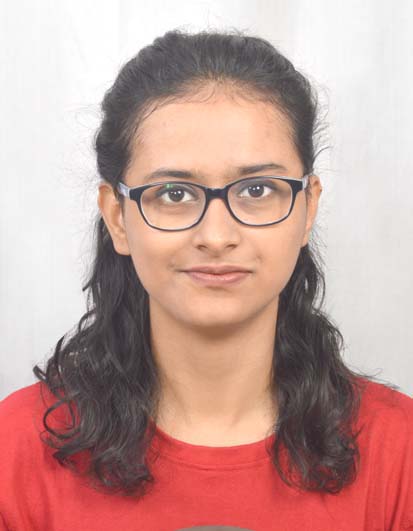
Ankita Sanyal is a doctoral candidate at Centre for West Asian Studies, Jawaharlal Nehru University, New Delhi. She worked as a summer intern at National Human Rights Commission, New Delhi in 2014 and participated in Global Initiative for Academic Networks, lecture on “Jerusalem and Abrahamic Faiths throughout the Ages” (November 2016); ICSSR-sponsored workshop on “Research Methodology Workshop in Social Sciences” (February 2019); and workshop on “Second Intensive Course on Women’s Studies in Islam and Iran” at the University of Religions and Denominations, Qom, Iran (August 2019). She currently has many publications and has presented papers in national and international conferences. She received certificate on completion of Level Two Persian Language course. Her area of interest includes minority studies, gender studies, cultural studies, education, peace and conflict studies.
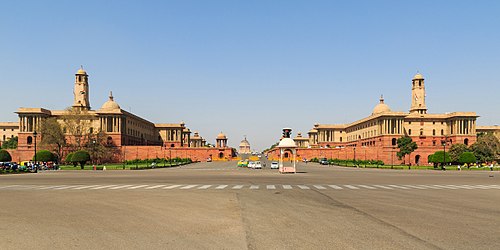
BILATERAL ISSUES BAHRAIN The CEO of LMRA highlights details on the new labour market reforms, .....
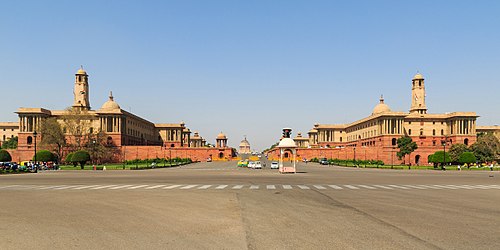
BILATERAL ISSUES EGYPT Raksha Mantri Shri Rajnath Singh to visit Egypt from September 19-20, 2.....
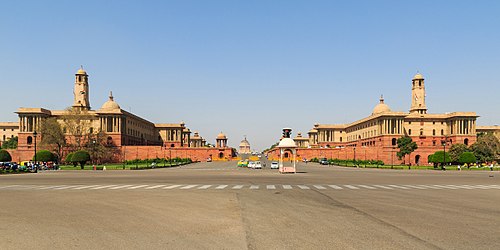
BILATERAL ISSUES IRAN Shri Sarbananda Sonowal visits Chabahar Port in Iran to Review work prog.....
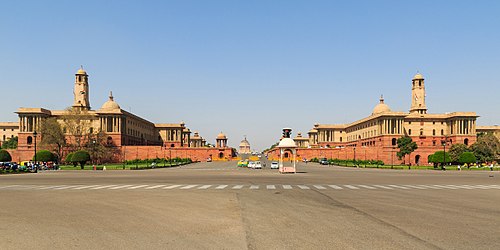
BILATERAL ISSUES BAHRAIN Buyer Seller Meet on Indian coffee between Indian exporters and Bahra.....
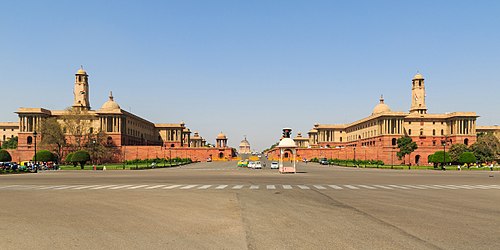
BILATERAL ISSUES BAHRAIN B2B meeting and Networking event between Bahraini & Indian IT com.....
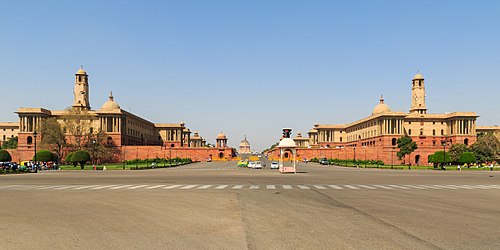
BILATERAL ISSUES OMAN Community Service Fortnight / Sewa Utsav’: ‘Celebration Thro.....
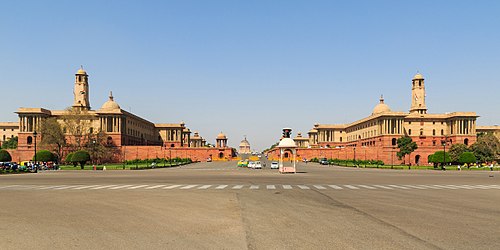
BILATERAL ISSUES BAHRAIN Virtual Buyer Seller Meet on agriculture and food products between In.....
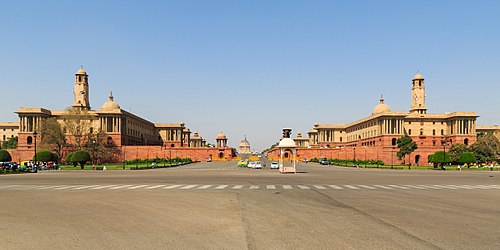
BILATERAL ISSUES BAHRAIN PM speaks on telephone with His Royal Highness Prince Salman bin Hama.....
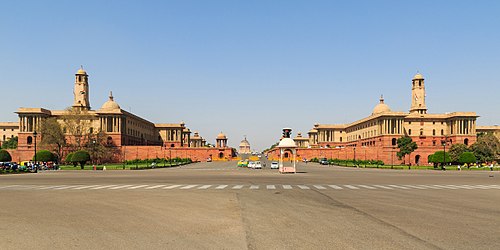
BILATERAL ISSUES ISRAEL Experts from India and Israel suggested expanding scope of India-Israe.....
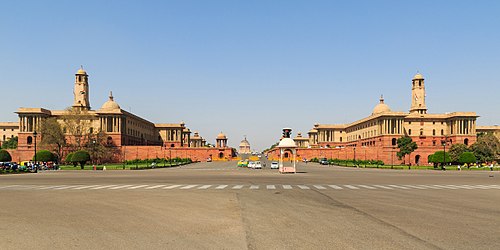
BILATERAL ISSUES BAHRAIN Press Release on virtual meeting between Minister for Education and S.....
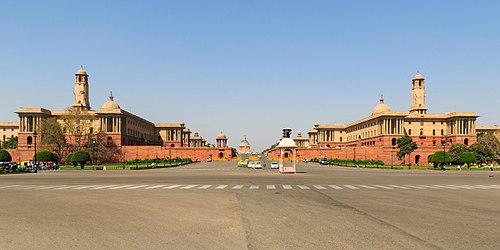
BILATERAL ISSUES BAHRAIN Ambassador’s visit to India Pavilion of Jewellery Arabia, Bahra.....
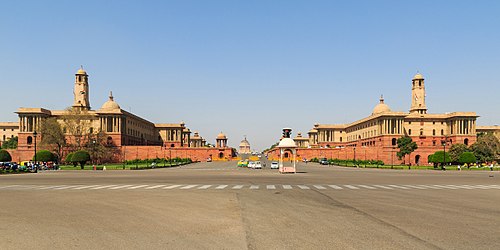
BILATERAL ISSUES BAHRAIN First consignment of GI tagged sweet dish Mihidana from West Bengal e.....
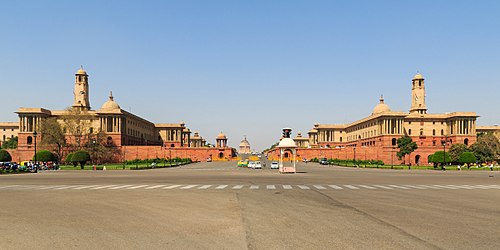
BILATERAL ISSUES ALGERIA Visit of Shri V. Muraleedharan, Minister of State for External Affair.....
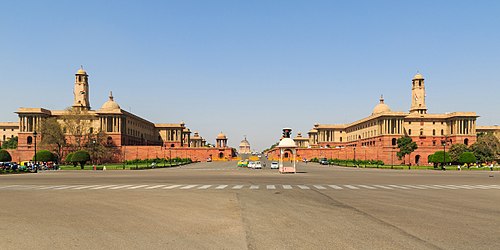
BILATERAL ISSUES ALGERIA INS TABAR undertook a bilateral Passage Exercise (PASSEX) with Algeri.....
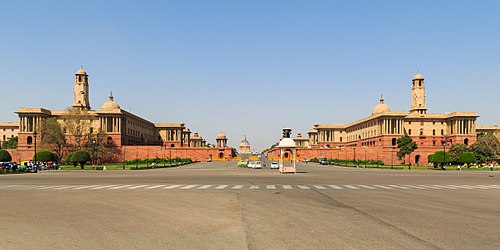
BILATERAL ISSUES BAHRAIN India expands mango export footprint to newer countries; GI certified.....
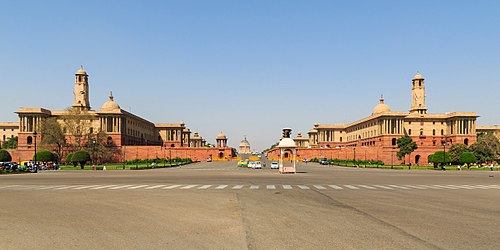
BILATERAL ISSUES ALGERIA APEDA in collaboration with Indian embassy organize virtual buyer sel.....
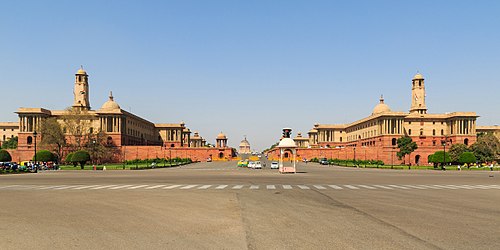
BILATERAL ISSUES EGYPT Procurement of 300,000 doses of Remdesivir from M/s EVA Pharma, Cairo, .....
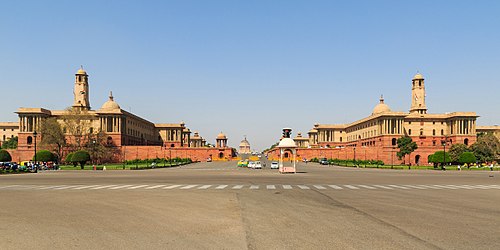
BILATERAL ISSUES BAHRAIN Third India-Bahrain High Joint Commission Meeting, New Delhi, 07 Apri.....
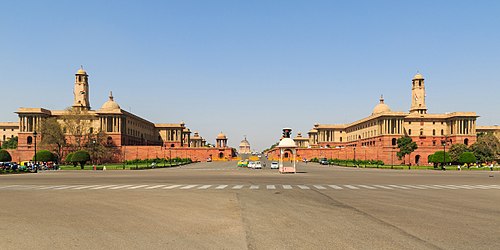
BILATERAL ISSUES BAHRAIN Indian Naval Ship Talwar’s Port Visit to Bahrain, Manama, 18 Ma.....
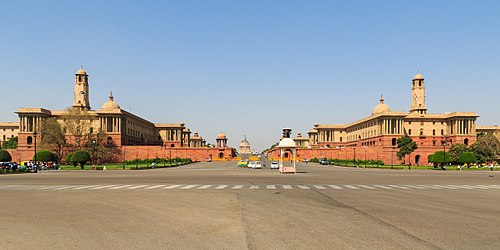
BILATERAL ISSUES IRAN Unstarred Question No.1475, Chabahar-Zaheden Railways Line, Lok Sabha, 1.....
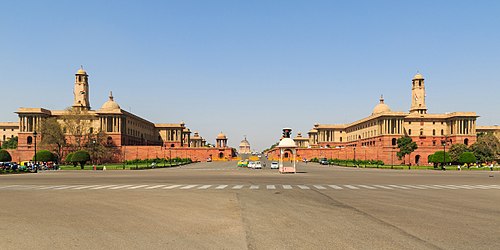
BILATERAL ISSUES IRAN Government of India strengthens cargo handling capacity of Chabahar Port.....
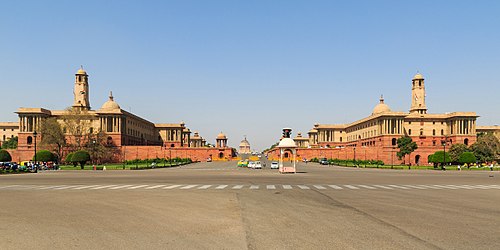
BILATERAL ISSUES BAHRAIN Warm greetings from Indian leadership on the occasion of Bahrain&rsqu.....
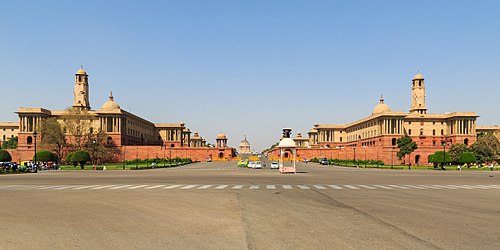
BILATERAL ISSUES BAHRAIN Prime Minister condoles the passing away of His Royal Highness Prince.....
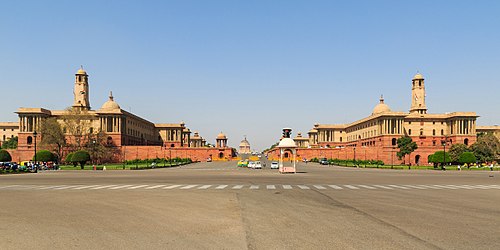
BILATERAL ISSUES BAHRAIN A B2B Webinar on Enhancing Opportunities in Pharmaceuticals and Alter.....
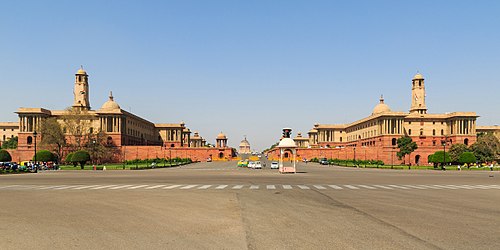
BILATERAL ISSUES IRAN Raksha Mantri Shri Rajnath Singh holds meeting with Iran's Minister .....
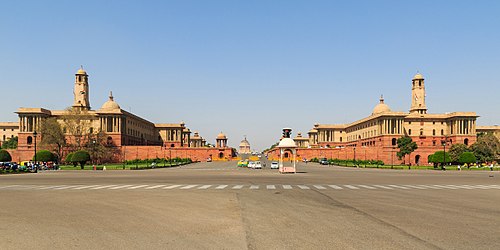
BILATERAL ISSUES ISRAEL Statement by the Official Spokesperson on the full normalisation of re.....
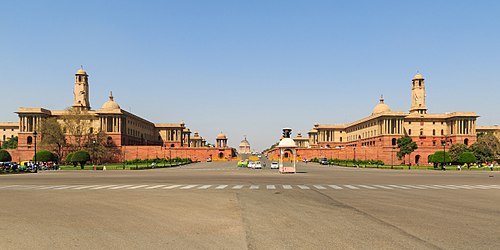
BILATERAL ISSUES ISRAEL Raksha Mantri Shri Rajnath Singh and Israeli Defence Minister telephon.....
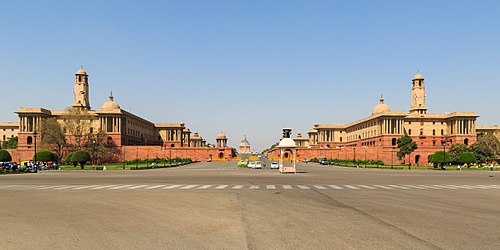
BILATERAL ISSUES IRAN Indian Navy Commences evacuation of citizens from Islamic Republic of Ir.....
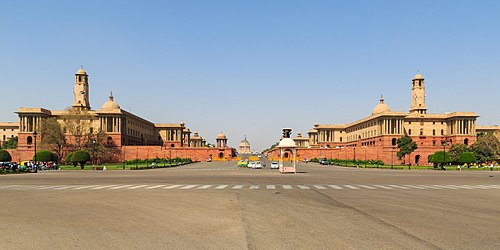
BILATERAL ISSUES EGYPT Phone call between Prime Minister Shri Narendra Modi and His Excellency.....
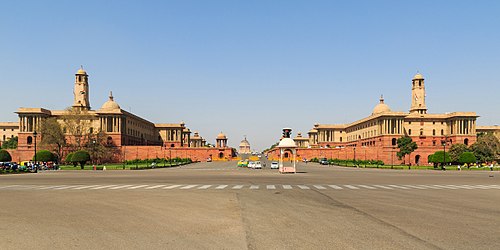
BILATERAL ISSUES BAHRAIN Telephone Conversation between PM and King of the Kingdom of Bahrain,.....
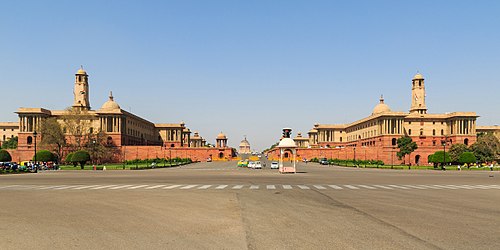
BILATERAL ISSUES IRAN IAF C-17 ‘Globemaster’ takes off for Iran, New Delhi, 9 Marc.....
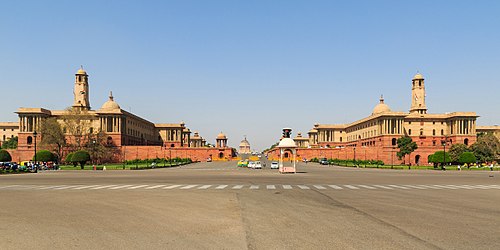
BILATERAL ISSUES IRAQ Travel Advisory for Indian Nationals travelling to Iraq, New Delhi, 19 F.....
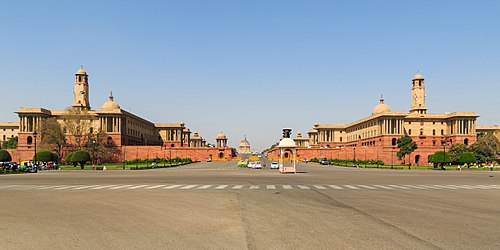
BILATERAL ISSUES EGYPT Photo exhibition on “Making of Indian Constitution and Life of Dr.....
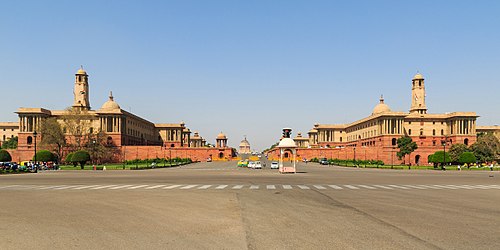
BILATERAL ISSUES EGYPT Prize Distribution Function of “Glimpses of India” Painting.....
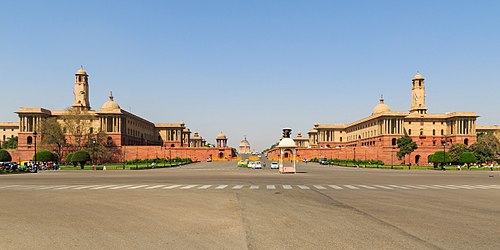
BILATERAL ISSUES EGYPT Consular Camp in Port Said on 22 November 2019, Cairo, 19 November 2019.....
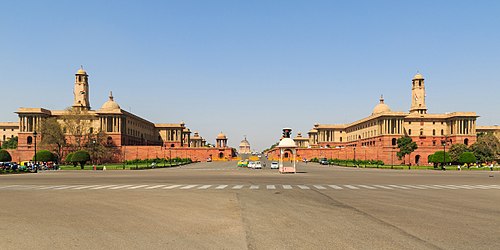
BILATERAL ISSUES JORDAN Meeting between Prime Minister and King of Jordan in Riyadh, Riyadh, 2.....
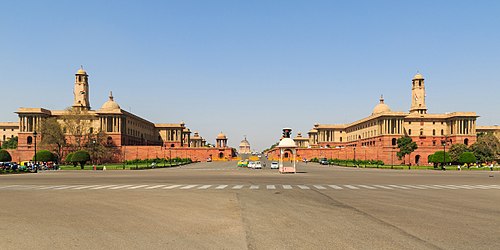
BILATERAL ISSUES a. IRAN Foreign Office Consultations between India and Iran, Tehran, 16 Septe.....
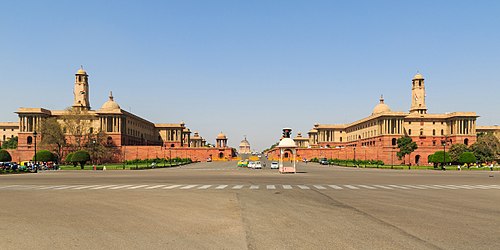
BILATERAL ISSUES a. BAHRAIN State Visits of Prime Minister to Bahrain (August 24-25, 2019), Ne.....
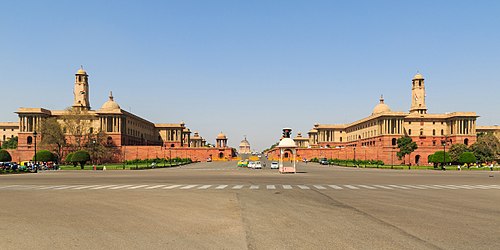
BILATERAL ISSUES BAHRAIN Cabinet approves Memorandum of Understanding between India and B.....
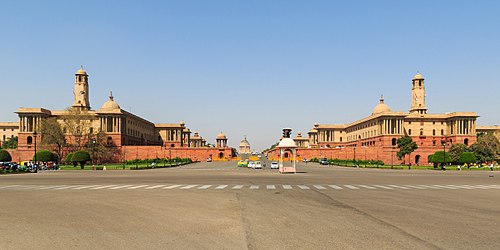
BILATERAL ISSUES IRAN UNSTARRED QUESTION No. 662 MPACT OF AMERICAN BAN ON CHABAHAR PORT, Rajya.....
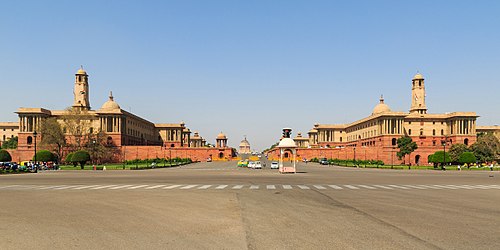
BILATERAL ISSUES IRAN 11th India Iran Joint Consular Committee Meeting (JCCM), New Delhi, 16 M.....
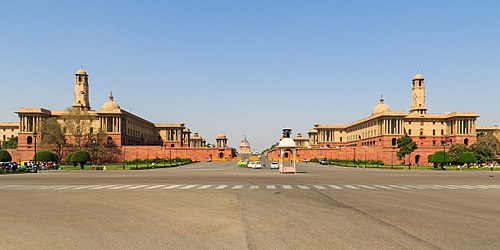
IRAN India extends relief assistance to Iran after recent floods, Tehran, 17 April 2019 In lin.....
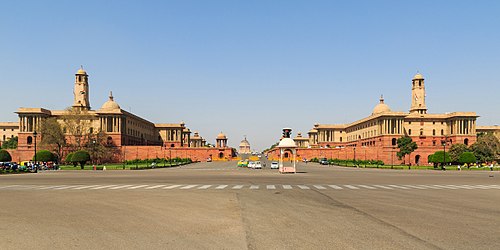
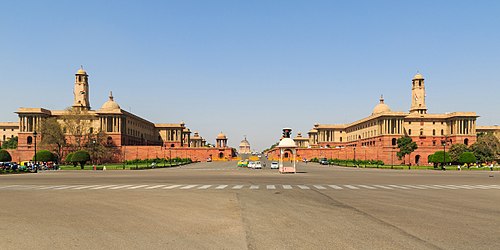
BILATERAL ISSUES EGYPT India condemns terrorist attacks in Egypt, New Delhi, 22 February 2019 .....
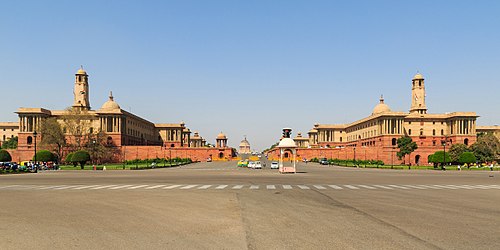
BILATERAL ISSUES ALGERIA Visit of Foreign Minister of Algeria to India (January 30-February 01.....
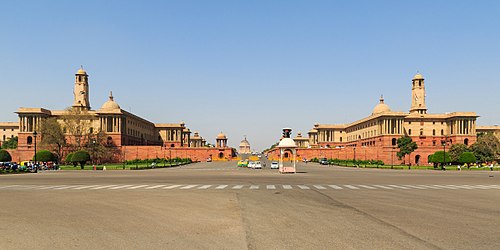
ALGERIA Cabinet approves Agreement between India and Algeria on Cooperation in the field of Space.....
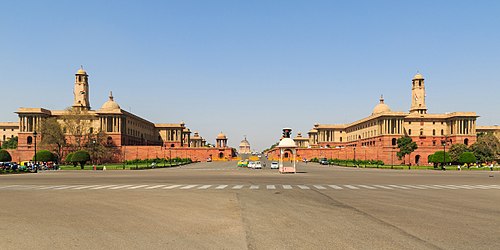
BILATERAL ISSUES IRAQ Jaipur Foot Camp in Karbala, Karbala, 21 November 2018 A 40-day Artif.....
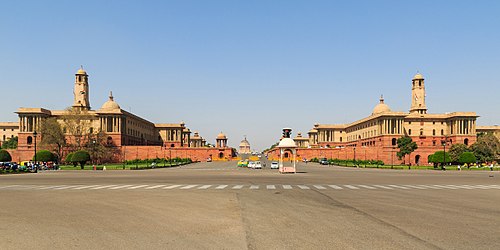
BILATERAL ISSUES KUWAIT Visit of External Affairs Minister to State of Qatar and State of Kuwa.....
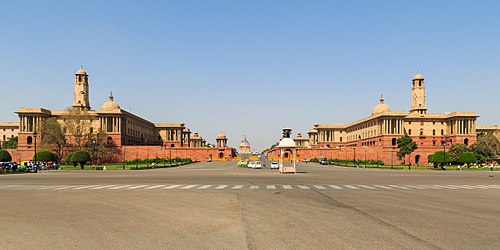
BILATERAL ISSUES EGYPT Cabinet approves MoU between India and Egypt on cooperation in the fiel.....
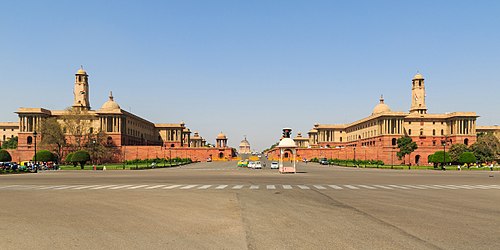
BILATERAL ISSUES BAHRAIN Question No. 3566, Unpaid Workers in Bahrain, Lok Sabha, New Delhi, 0.....
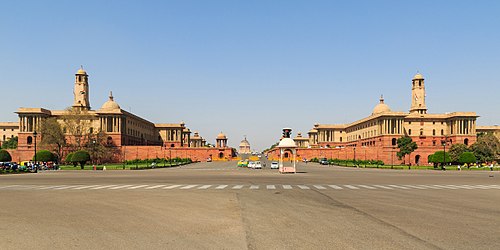
BILATERAL ISSUES BAHRAIN Visit of External Affairs Minister to Manama, Bahrain (July 14-15, 20.....
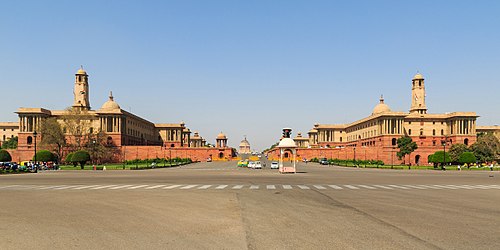
BILATERAL ISSUES BAHRAIN Cabinet approves MoU between India and Bahrain on cooperation in the .....
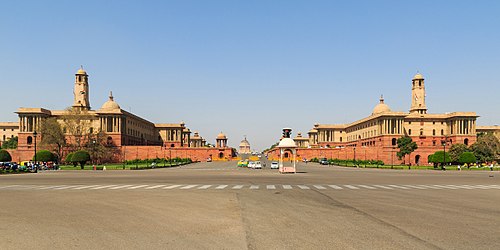
BILATERAL ISSUES IRAN External Affairs Minister’s meeting with Iranian Foreign Minister,.....
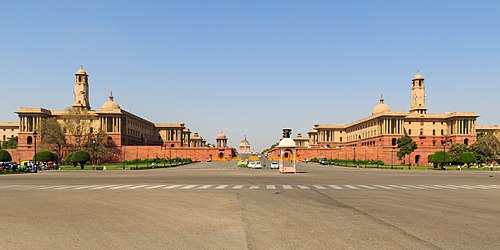
BILATERAL ISSUES IRAN Cabinet approves MoU between India and Iran on the establishment of an e.....
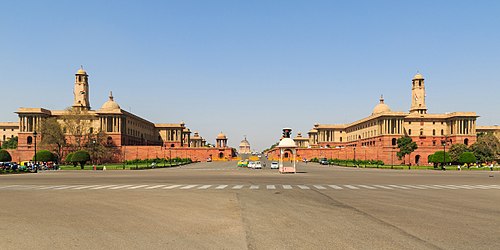
(Monthly Digest of Official Indian Statements on Middle East) BILATERAL ISSUES EGYPT Mr. Sa.....
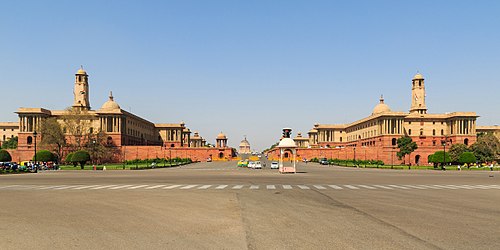
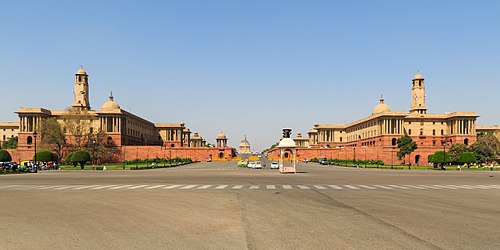
(Monthly Digest of Official Indian Statements on Middle East) BILATERAL ISSUES IRAN Launch .....
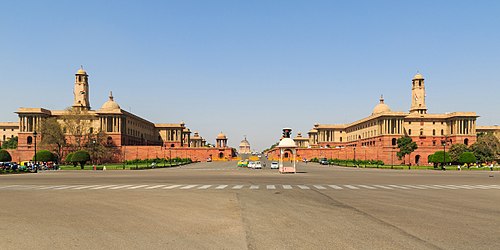
(Monthly Digest of Official Indian Statements on Middle East) BILATERAL ISSUES &.....
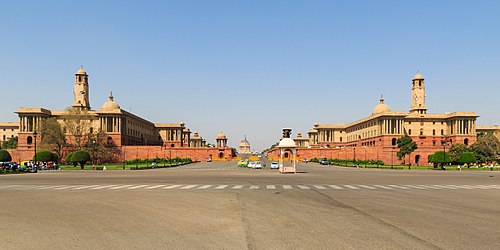
BILATERAL ISSUES a. EGYPT 1. H.E. Col. Rajyavardhan Singh Rathore, Minister of State for Youth.....
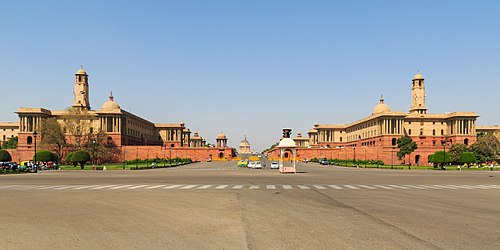
BILATERAL ISSUES a. IRAQ 1. India’s position on the Referendum held in the Kurdistan Reg.....
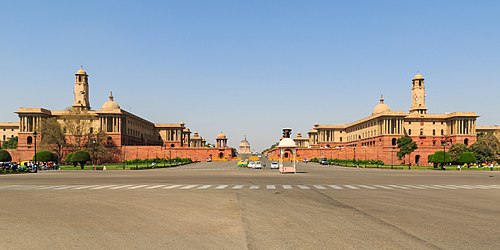
BILATERAL ISSUES IRAN 1. 6th Meeting of Joint Committee on Ports and Maritime Cooperation.....
